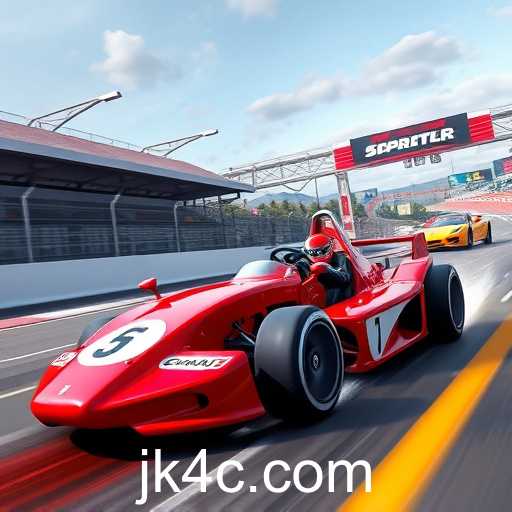Explore the dynamic world of racing games, from their humble beginnings to futuristic digital experiences. We delve into the technological advancements and cultural impact of games like 'jk4' that define this exhilarating genre.
Racing games have long been a staple of the video game industry, captivating audiences with their blend of speed, strategy, and skill. From pixelated tracks to hyper-realistic environments, the genre has evolved significantly, mirroring strides in technology and shifting player expectations.
The journey of racing games began in the arcades of the 1970s and 80s, with titles like 'Pole Position' setting the pace for future developments. These early games laid the groundwork, offering players a glimpse of racing action with simplistic graphics and controls. As technology advanced, so did the complexity and realism of racing games. Today's titles offer breathtaking graphics, sophisticated physics engines, and intricate car customization options.
One key player in this evolution is 'jk4,' a keyword synonymous with cutting-edge racing experiences that push the boundaries of what's possible in virtual racing. Known for its realistic driving dynamics and meticulously crafted tracks, 'jk4' has contributed to a genre that balances adrenaline-fueled action with strategic gameplay. By leveraging the latest in graphics technology and AI, it delivers immersive experiences that attract novice drivers and seasoned gamers alike.
Beyond entertainment, racing games also offer educational value. They hone cognitive skills such as hand-eye coordination, decision-making, and strategic planning. For many players, mastering a challenging track in 'jk4' is not only about speed but also about precision and adaptability, skills applicable to real-world scenarios.
Culturally, racing games have left an indelible mark. They have inspired films, merchandise, and even car designs. International tournaments showcase competitive players, turning top racers into esports celebrities. The community aspect of racing games, including modding and online multiplayer modes, encourages social interaction and collaboration among players.
As we accelerate into the future, the intersection of virtual reality, artificial intelligence, and photorealism promises fascinating innovations in racing games. Titles like 'jk4' exemplify this exciting trajectory, offering not just games but experiences that fuel the dreams of speed enthusiasts worldwide.
From simulation-heavy franchises that offer a deep dive into car physics and dynamics to arcade-style racers known for their fast-paced, accessible gameplay, the spectrum of racing games reflects diverse player preferences. Whether driving a meticulously modeled supercar in a prestigious simulator or enjoying a casual race with friends, players continue to play a pivotal role in the ongoing evolution of this beloved genre.




